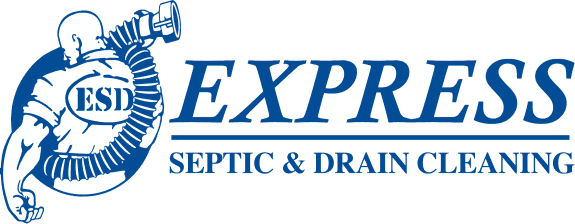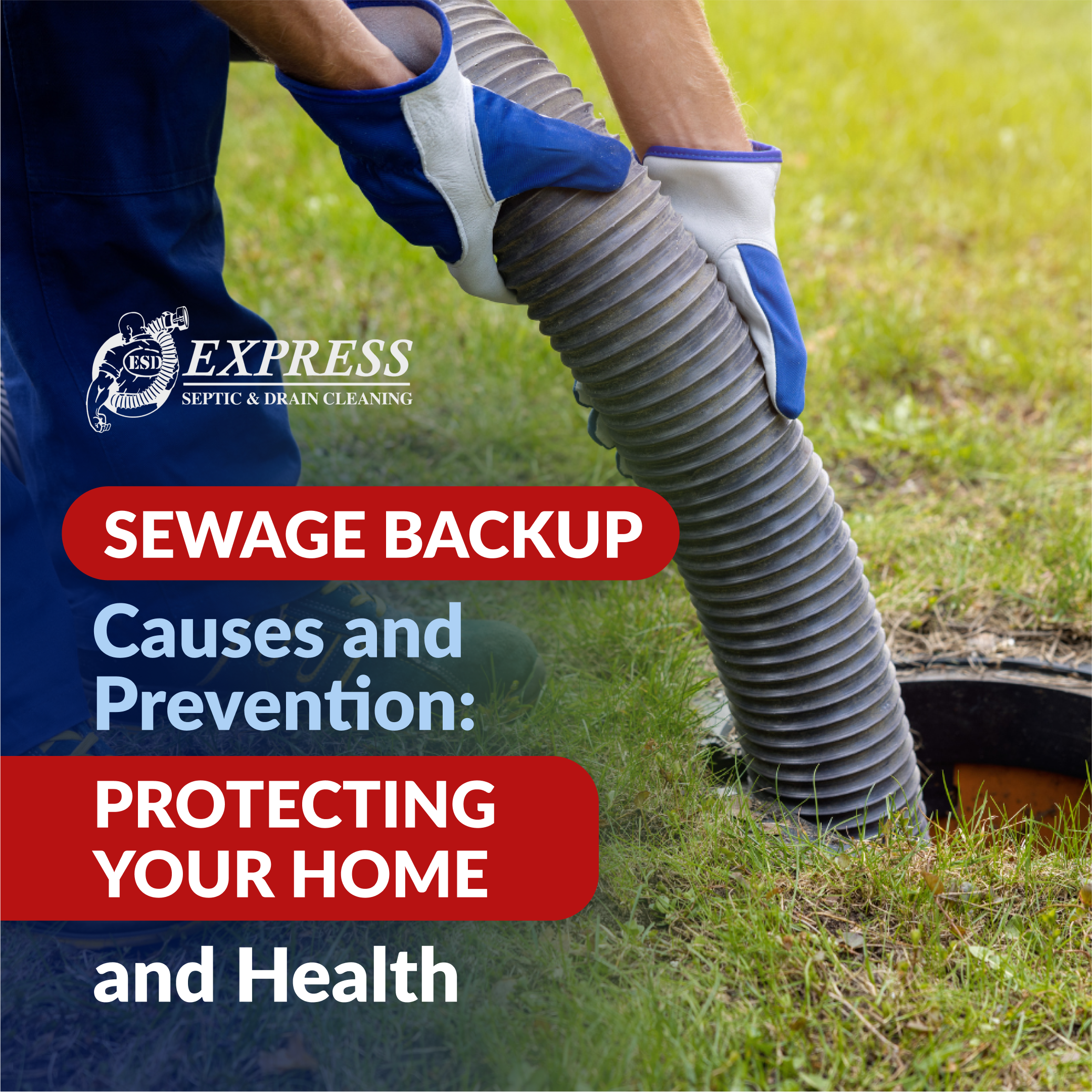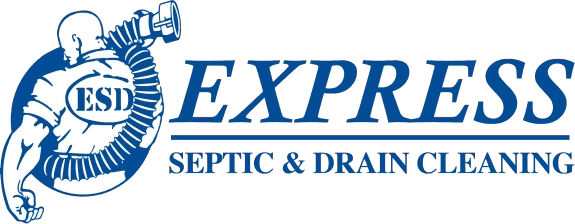A sewage backup is a serious and potentially dangerous problem. It can happen for many reasons. If not resolved quickly, it can lead to extensive property damage and health and safety hazards. Fortunately, there are ways to prevent sewage backups, including sewer line cleaning and watching what goes down your drains.
At Express Septic, we provide septic and drain cleaning services in Nampa, ID, and surrounding areas. Nothing avoids drain backups more effectively than preventative maintenance. We’ll look at the causes of sewer line backups and how to prevent them to protect your home and family.
Understanding Sewage Backups
Whether your property has a septic tank or is connected to a municipal sewage system, wastewater must be transported away. An obstructed or broken drain pipe can lead to water backing up sinks, tubs, and toilets. Whether the issue is in your home’s main sewer line or beyond that, a sewage backup is an emergency.
Common Causes of Sewage Backups
A sewer can back up for many reasons. The problem can’t be fixed until a plumbing professional identifies the cause. These are the most common issues that lead to a backed-up sewer line:
Clogged Drains
Clogged drain pipes can leave waste with nowhere to go but back into your home. It doesn’t take much to clog a sewer line. The pipe is just large enough to move human waste and toilet paper. Hair, food scraps, and solid objects can get stuck or accumulate inside a pipe until it becomes completely blocked. When this happens, multiple fixtures and drains can malfunction.
Tree Root Intrusion
The contents passing through a sewer line aren’t good for people but contain nutrients for trees. To obtain moisture and nutrients, tree roots grow toward, around, and into drain lines. They can crack or crush sewer pipes. Once inside, roots can grow nonstop until a blockage causes a sewage backup.
Broken or Damaged Pipes
Aging pipes are a common cause of backups. Even piping made of cast iron or clay deteriorates over time, while PVC is durable but can break down after several decades. Older metal pipes are also prone to corrosion, which can cause holes and cracks to form. Shifting soil and other ground materials can break apart sewer pipes and cause wastewater to back up.
Heavy Rainfall and Flooding
A heavy rainstorm can overwhelm a sewer system with water, whether from too much rain, floodwaters, or saturated ground. Older infrastructure is more susceptible to damage from heavy rain and flooding. Improperly routed gutters, downspouts, and sump pump lines can also cause problems; they should be routed to storm sewers, as sanitary sewers can’t handle that much water.
Septic Tank Issues
If your home has a septic system, common problems include poor installation, increased water usage, or a clogged septic tank. An overflow or clogged drain field can also cause sewage backups. The outlet filter, which prevents the drain field from becoming overloaded with debris, can become blocked as well. Another cause can be harsh chemicals from drain cleaners, detergents, or pesticides that kill bacteria that break down solid waste in the tank.
Recognizing the Warning Signs
A sewage backup can cause plumbing overflows throughout your home, requiring a messy cleanup. It can also do major damage to your plumbing system and furnishings, not to mention compromise the structural integrity of your home. Plus, sewage may contain viruses, bacteria, and toxic materials that can cause serious illness.
Recognizing the early warning signs helps avoid these problems. An experienced technician can promptly diagnose and repair the damage, so there are no further concerns. Therefore, call your local plumbing contractor if you notice the following signs of trouble:
- Sewage Odor: The unignorable smell of sewage is a sure sign of a sewer backup.
- Slow Drains: When several drains start moving slowly, assume a blockage is building in the main sewer line.
- Water Backups: A tub, shower drain, or a toilet overflowing means the drain line is blocked.
- Gurgling Sounds: A clog in a sewer pipe can trap air; gurgling drains and toilets mean air bubbles are trying to escape.
- Dampness Around Floor Drains: Drains in your basement, garage, or laundry room are typically the first to overflow.
- Issues in Your Yard: Puddles of water when it hasn’t rained, lush patches of grass, and sinkholes are signs your main sewer line is damaged.
Preventing Sewage Backups
Not all sewer line backups can be prevented. Some occur as pipes age and deteriorate. However, you can reduce the risk of one or avoid it altogether by taking the following precautions:
- Don’t pour grease down the kitchen sink; it can solidify inside drain lines.
- Put only small quantities of food in a disposal or drain.
- Throw fibrous food scraps in the trash.
- Never flush paper towels, diapers, facial tissues, or hygienic products.
- Schedule a sewer line inspection every few years.
- Hire a professional to perform sewer cleaning as preventative maintenance.
- Replace older sewer pipes with newer, more durable piping.
- Hire a contractor to maintain and treat your septic tank.
If sewage is backing up in your home:
- Evacuate the flooded area until it is cleaned and sanitized.
- Turn off electrical power and avoid electrical devices.
- Turn off the main water valve and don’t use plumbing fixtures.
- Ventilate the area by opening windows and doors.
- Wear protective clothing (a facemask, goggles, gloves, and rubber boots) if you must work in the affected area.
- Contact your insurance company.
- Call a professional plumber.
Sewer Line Cleaning and Solutions
A professional sewer cleaning in Kuna reduces the risk of backups and pipe damage. It can also improve drainage and reduce odors and noise from your drains. For a proper sewer line cleanout, you’ll need a reputable plumbing company. A highly reviewed and recommended contractor uses advanced tools and equipment to access your main drain line and remove whatever is blocking it. During a sewer line cleaning, they also inspect the pipe and, if necessary, perform repairs or replace damaged sections.
FAQs
What Are the Most Common Dangers of a Sewage Backup?
The most common hazards associated with raw sewage include:
- Health issues like gastric distress, skin rashes, headaches, and respiratory irritation.
- Water damage to floors, walls, insulation, furnishings, and building materials.
- Contamination of your potable water supply.
- Mold, which can lead to additional damage and health concerns.
- Electrical damage that can cause shock, electrocution, or a fire.
- Damage to floor joists, foundations, and other structural elements.
What Should I Do First During a Sewage Backup?
Get to safety and call a professional. The sooner you call, the more quickly they can address the issue, minimize the damage, and restore your property. A sewer backup isn’t something you can fix yourself.
How Can I Tell If Tree Roots Are Causing a Sewer Line Problem?
Slow drains, odors, and other plumbing problems can be caused by tree roots. Sinkholes can also indicate there’s pipe damage caused by roots. A plumber can identify the issue by examining trees near the underground pipe or performing a sewer line camera inspection.
Can I Flush Down the Toilet to Cause a Sewage Backup?
Flushing the wrong things can clog not only the drain pipes for your home or building but also your neighborhood.
Are Older Plumbing/Sewer Systems More At Risk?
An older system, even if made of durable materials, is more prone to a sewage backup due to blockages, corrosion, and pipe collapse.
Have a Sewage Backup? Contact Express Septic & Drain Cleaning
A high standard of excellence, professional technicians, and a commitment to your well-being are some reasons to choose us to address drainage and sewer line problems. We can quickly clean and repair your sewer line (trenchless options are used when possible). If you have a septic system, our team helps with maintenance, repair, inspections, testing, and enzyme treatment. Financing options are available to help you budget for costly services. For more information or to request service, contact us today.



